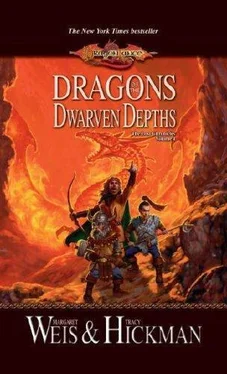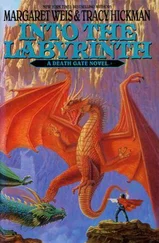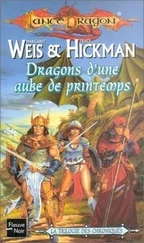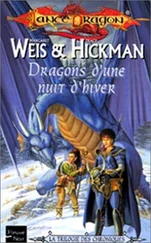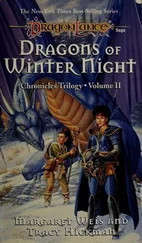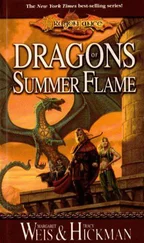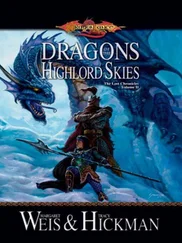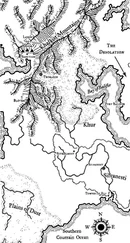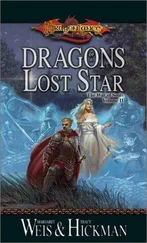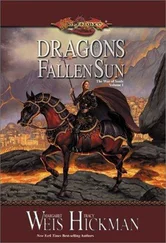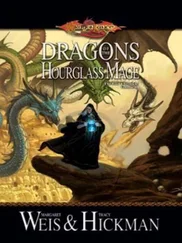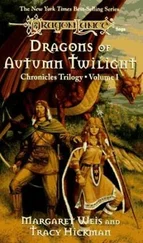Margaret Weis - Dragons of The Dwarven Depths
Здесь есть возможность читать онлайн «Margaret Weis - Dragons of The Dwarven Depths» весь текст электронной книги совершенно бесплатно (целиком полную версию без сокращений). В некоторых случаях можно слушать аудио, скачать через торрент в формате fb2 и присутствует краткое содержание. ISBN: , Жанр: Фэнтези, на английском языке. Описание произведения, (предисловие) а так же отзывы посетителей доступны на портале библиотеки ЛибКат.
- Название:Dragons of The Dwarven Depths
- Автор:
- Жанр:
- Год:неизвестен
- ISBN:0-7869-4099-9
- Рейтинг книги:5 / 5. Голосов: 1
-
Избранное:Добавить в избранное
- Отзывы:
-
Ваша оценка:
- 100
- 1
- 2
- 3
- 4
- 5
Dragons of The Dwarven Depths: краткое содержание, описание и аннотация
Предлагаем к чтению аннотацию, описание, краткое содержание или предисловие (зависит от того, что написал сам автор книги «Dragons of The Dwarven Depths»). Если вы не нашли необходимую информацию о книге — напишите в комментариях, мы постараемся отыскать её.
Dragons of The Dwarven Depths — читать онлайн бесплатно полную книгу (весь текст) целиком
Ниже представлен текст книги, разбитый по страницам. Система сохранения места последней прочитанной страницы, позволяет с удобством читать онлайн бесплатно книгу «Dragons of The Dwarven Depths», без необходимости каждый раз заново искать на чём Вы остановились. Поставьте закладку, и сможете в любой момент перейти на страницу, на которой закончили чтение.
Интервал:
Закладка:
The wagons were gathering speed. The dwarven soldiers stood arm-in-arm, their feet planted wide apart, forming a human barricade to keep the mob from rushing the mechanism that controlled the wagons. Tas saw an opening. He dropped down on all fours and crawled between the legs of a guard, who was so preoccupied with forcing back the heaving press of bodies that he never noticed the kender.
Tas sprinted down the rail line and caught up with the last wagon. He threw his hoopak inside, then he leapt onto the back of the wagon and clung there as tight as a tick. After a tense moment when he nearly lost his grip, Tas hoisted one leg up over the side. The rest of him followed, and he tumbled down to join his hoopak at the bottom of the wagon. Tasslehoff lay on his back, admiring the view of passing stalactites on his way to the Valley and thinking how pleased Flint was going to be to see him.
The Seventh, Eighth, and Ninth Roads led to the Kalil S’rith, the Valley of the Thanes. Each road ended at an entrance known as Guardian Hall, though no dwarves ever stood guard there. There was no need. Reverence and respect were the guardians of the Valley. Dwarves coming to bury their dead were the only ones who ever entered, and they stayed only long enough to pay their homage to the fallen.
It was not like that in the old days, at least so Flint had heard. Before the Cataclysm, the priests of Reorx tended the Valley, keeping all neat and trim. Dwarves came to celebrate family anniversaries with their ancestors. Pilgrims came to visit the resting places of ancient Thanes. After the clerics departed, the dwarves continued to come to the Valley, but without the clerics to tend to it, the grass grew long and wild, the tombs fell into disrepair, and soon the dwarves quit coming. Although dwarves revered their ancestors and thought enough of them to include them in their politics and in their daily lives, asking them for guidance or assistance, the dwarves were now reluctant to disturb the slumbers of the dead. Once a dwarf was laid in tomb or cairn, his family bid farewell and departed, returning to the Valley only when it was time to bury another family member.
The Valley of the Thanes was hallowed ground, blessed centuries ago by Reorx. Once the valley had been a place of quiet and peace. Now it was a place of sorrow. The valley was also a place of sun and wind, cloud and stars, for the valley was the only area in Thorbardin on which the sunlight shone. This was another reason the dwarves rarely went there. They were like babes in the womb, who cry at the light. Living all their lives in the snug darkness beneath the mountain, the dwarves of Thorbardin felt uncomfortable—vulnerable and exposed—when they entered the wind-swept, sun-drenched emptiness of the valley.
The huge bronze doors of the Guardian Hall were marked with the symbol of the Eighth Kingdom—a hammer prone, lying at rest; the warrior’s hand having put it down.
Neither Flint nor Arman spoke during the journey down the Eighth Road. Neither spoke as they walked toward the bronze doors. The noise of the chaotic scene behind them had faded away in the distance. Each was occupied with his own thoughts, hopes, dreams, desires, and fears. They came to the double doors, and by unspoken, mutual consent, they put their hands to opposite sides—Flint taking the left and Arman Kharas the right. Removing their helms and bowing their heads, they pushed open the great doors of the Kilil S’rith.
Sunlight—bright, brilliant, blinding—struck them full in the face. Arman Kharas squinted his eyes half-shut and held up his hand to blot out the dazzling light. Flint blinked rapidly, then drew in a huge gulp of crisp mountain air and lifted his face to the warmth of the sunshine.
“By Reorx!” Flint breathed. “I did not know how much I missed this! It is like I have come back to life!”
Ironic, he thought, in a valley of death.
Arman shielded his eyes. He could not look into the wide, blue sky.
“For me it is like death,” he said grimly. “No walls, no borders, no boundaries, no beginning, and no end. I see the vast expanse of the universe above me, and I am nothing in it, less than nothing, and I do not like that.”
It was then Flint truly understood, for the first time, the vast gulf that lay between his people and those beneath the mountain. Long ago, both clans had been comfortable walking in sunlight and in darkness. Now what was life to one was death to the other.
Flint wondered if his people could ever go back to what had once been, as Arman Kharas dreamed. Hearing again the curses, the insults, the words of hate—sharper, harder, and more lethal than missiles—feeling the burning of anger in his own heart, Flint did not consider it likely hammer or no hammer. Though his anger burned, he felt a sorrow at that, as though he’d misplaced something treasured.
The two dwarves stood waiting for their eyes to grow accustomed to the bright light before they proceeded. Neither could see very well, thus neither of them noticed Tasslehoff climb out of the wagon. He had thrown off the bulky helm and removed his smelly and itchy leather vest, and he hurried toward the bronze door intending to take Flint by surprise, for it was always fun to see the old dwarf jump into the air and go red in the face.
Tas ran inside the doors, and the sun hit him smack in the face. The sunlight was bright and completely unexpected. Clapping his hands over his eyes, the kender went reeling backward through the bronze doors. The glare jabbed right into his brain, and all he could see was a huge red splash streaked with blue and decorated with little yellow speckles. When this admittedly entertaining and interesting phenomenon had passed, Tas opened his eyes and saw, to his dismay, that the bronze doors had swung shut, leaving him stranded in darkness that was worse than ever.
“I’m going to an awful lot of trouble,” Tas grumbled, rubbing his eyes. “I hope Flint appreciates it.”
The Valley of the Thanes had been a cavern that had collapsed thousands of years ago, leaving it open to the air. The dead lay in small burial mounds rising up out of the rustling brown grass, or in large cairns marked by stone doors, or in the instances of very wealthy and powerful dwarves, the dead were entombed inside mausoleums. Each site was marked with a stone in which the family name had been carved at the top, with the names of the individual family members added in rows underneath. Some families had several such stones, for their generations extended back through time. Flint kept an eye out for Neidar names as he went, including his own, Fireforge. Another point of contention between the clans when Duncan sealed up the mountain was that the Neidar who came back to Thorbardin to be buried were now barred from their traditional resting place.
No paths or trails circled the mounds. The feet of mortals rarely walked here. Flint and Arman wended their way among the mounds, their destination visible to them the moment their eyes grew accustomed to the light—Duncan’s Tomb.
The ornate and elaborate structure, more like a small palace than a tomb, floated majestically many hundred feet above a still blue lake in the center of the valley. The lake had been formed by run-off from the mountain snows flowing into the hole left behind when the tomb was wrenched out of the earth.
Flint could not take his eyes from the marvelous sight. He stared at the tomb in awe. He had seen many dwarven-built monuments before, but none to rival this. Weighing tons upon tons, the tomb floated among the clouds as if it were as light as any of them. Towers and turrets made of white marble adorned with flame red tile shone in the sunlight. Stained glass windows opened onto balconies. Steep stairs led from one level to another, crisscrossing up and down and circling round the edifice.
Читать дальшеИнтервал:
Закладка:
Похожие книги на «Dragons of The Dwarven Depths»
Представляем Вашему вниманию похожие книги на «Dragons of The Dwarven Depths» списком для выбора. Мы отобрали схожую по названию и смыслу литературу в надежде предоставить читателям больше вариантов отыскать новые, интересные, ещё непрочитанные произведения.
Обсуждение, отзывы о книге «Dragons of The Dwarven Depths» и просто собственные мнения читателей. Оставьте ваши комментарии, напишите, что Вы думаете о произведении, его смысле или главных героях. Укажите что конкретно понравилось, а что нет, и почему Вы так считаете.
